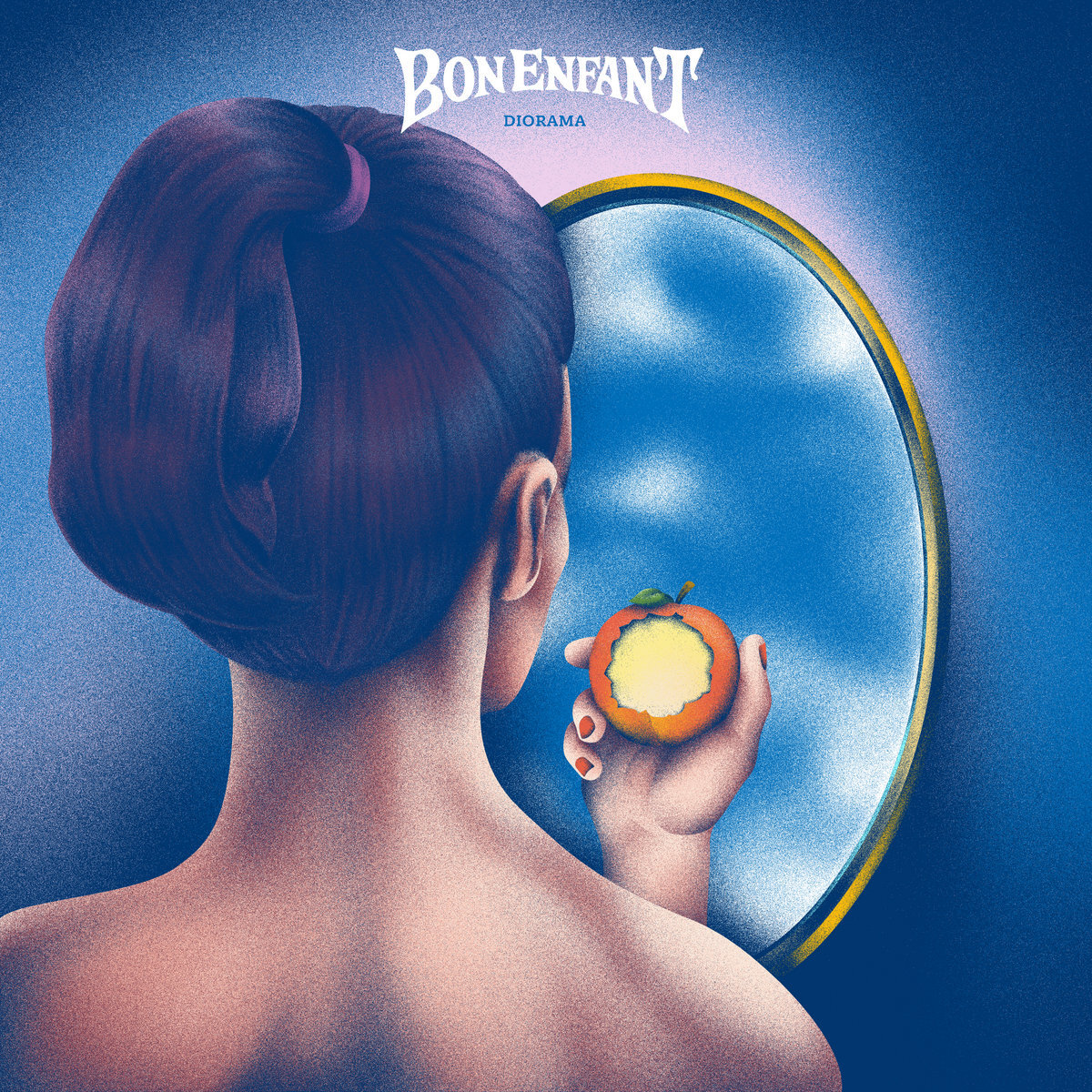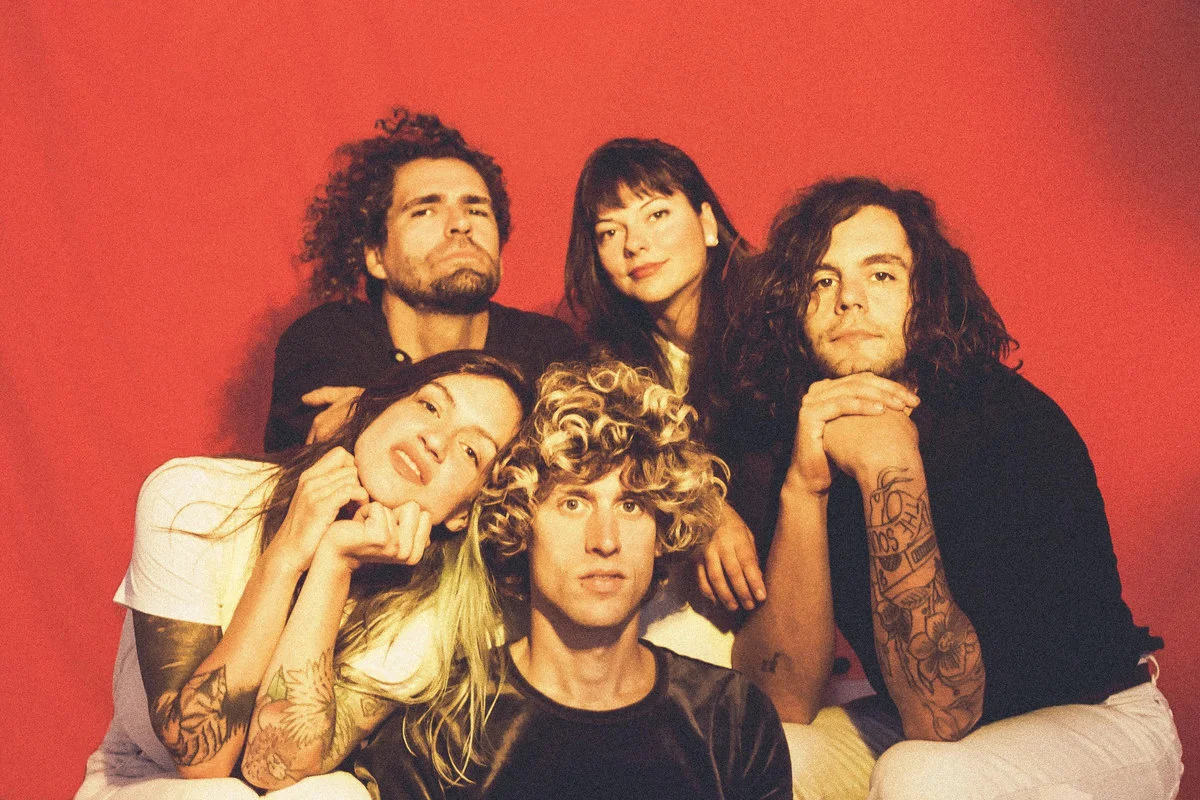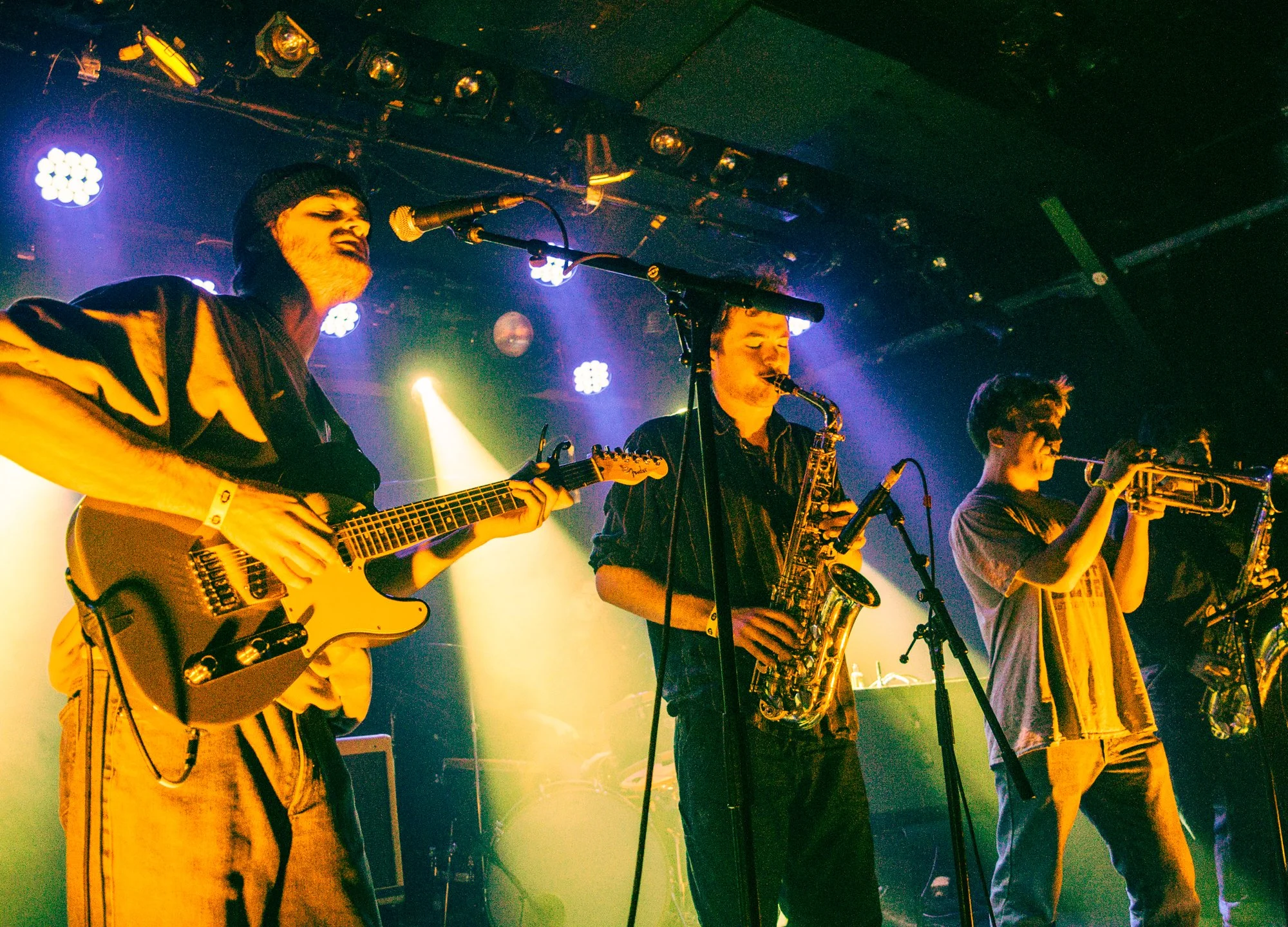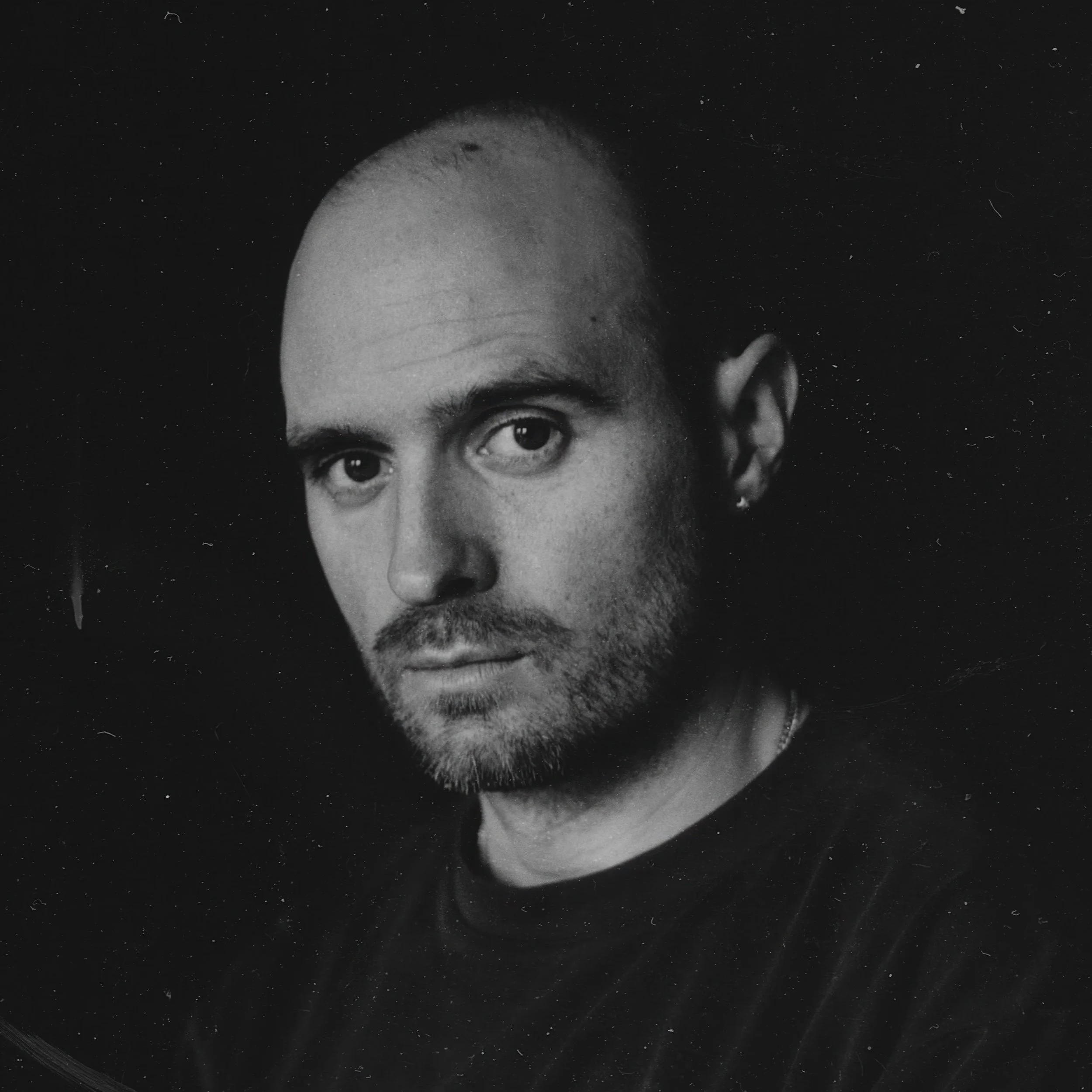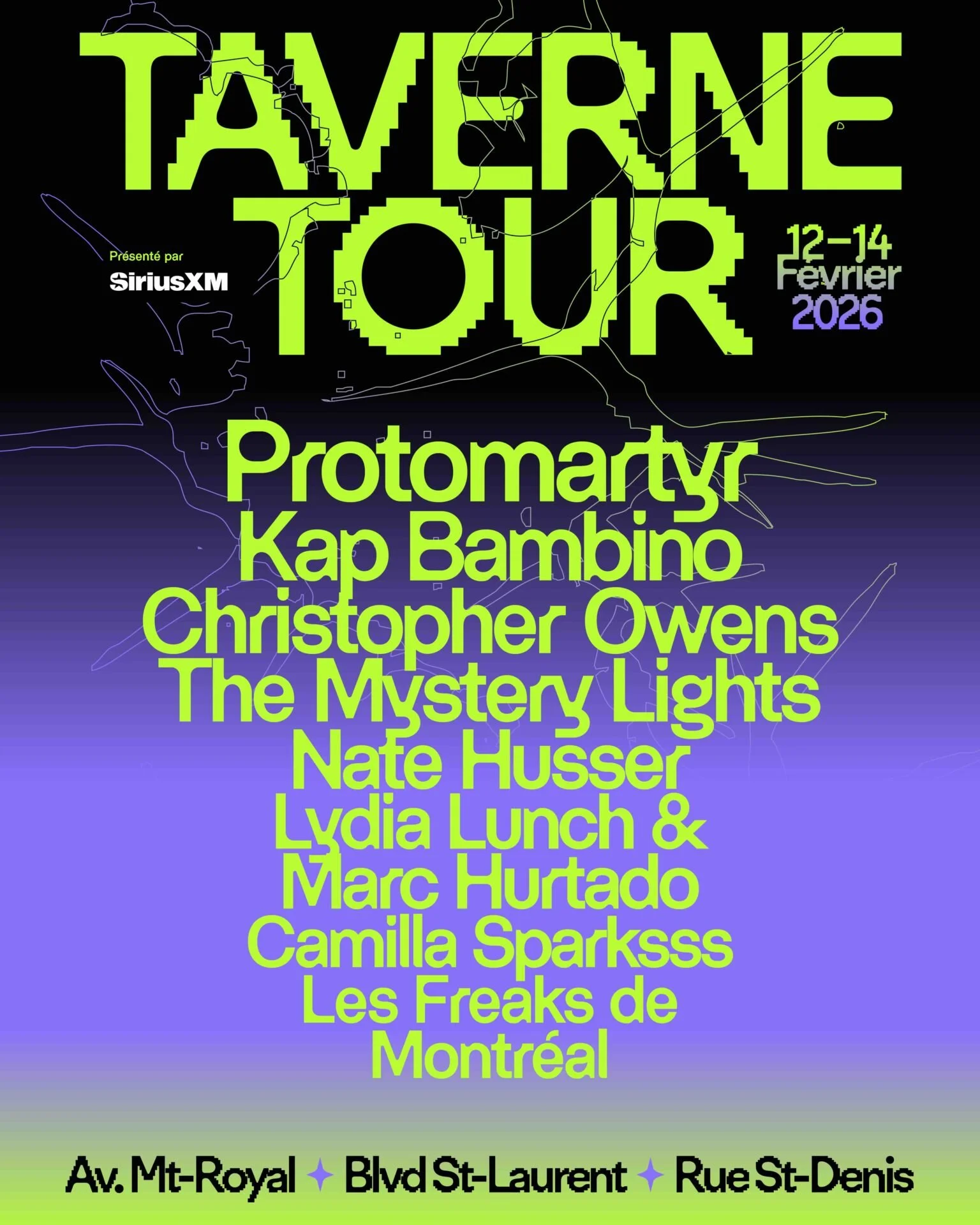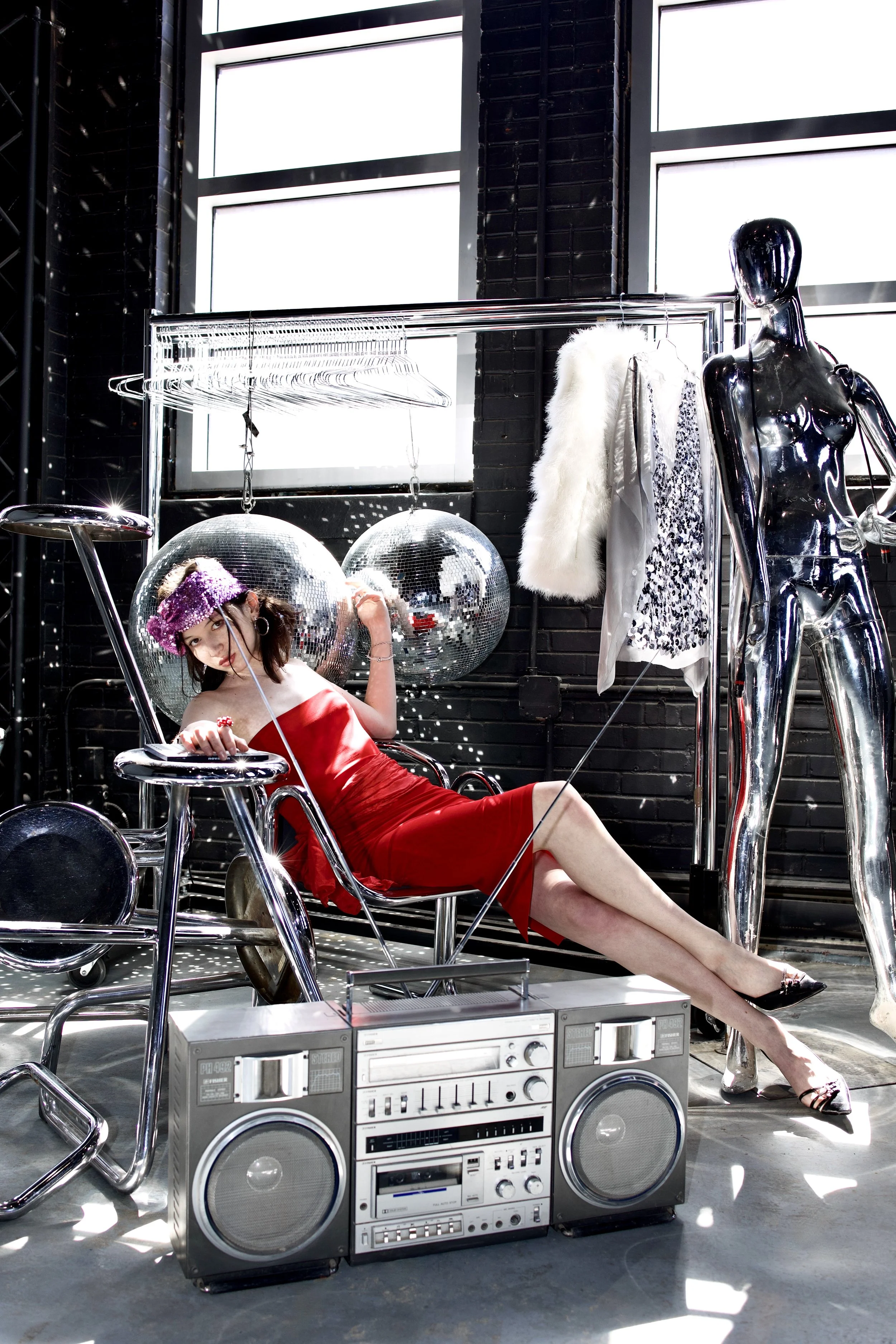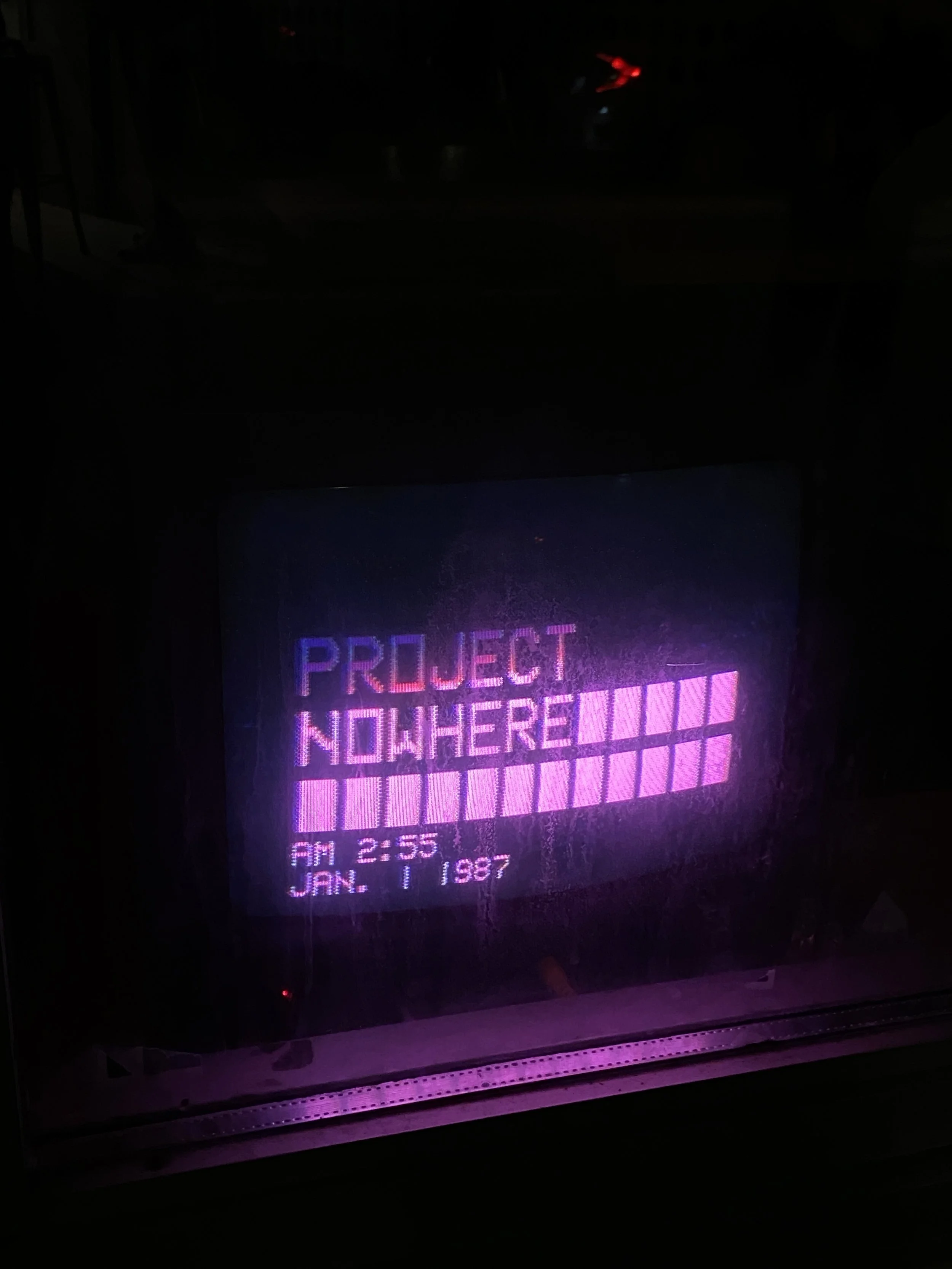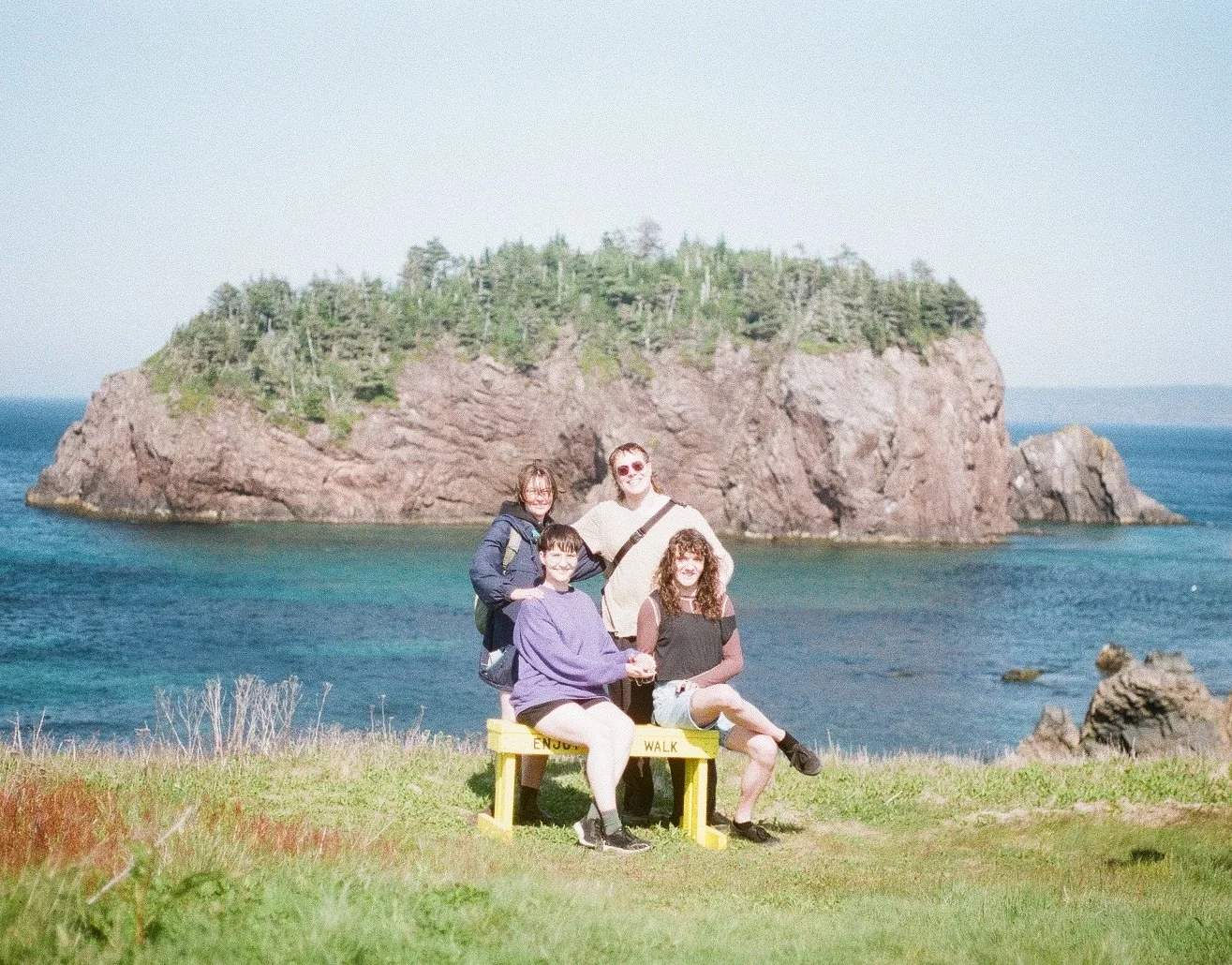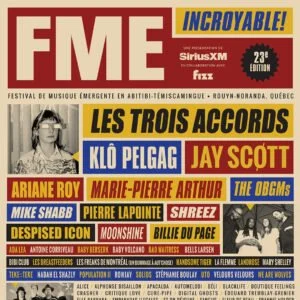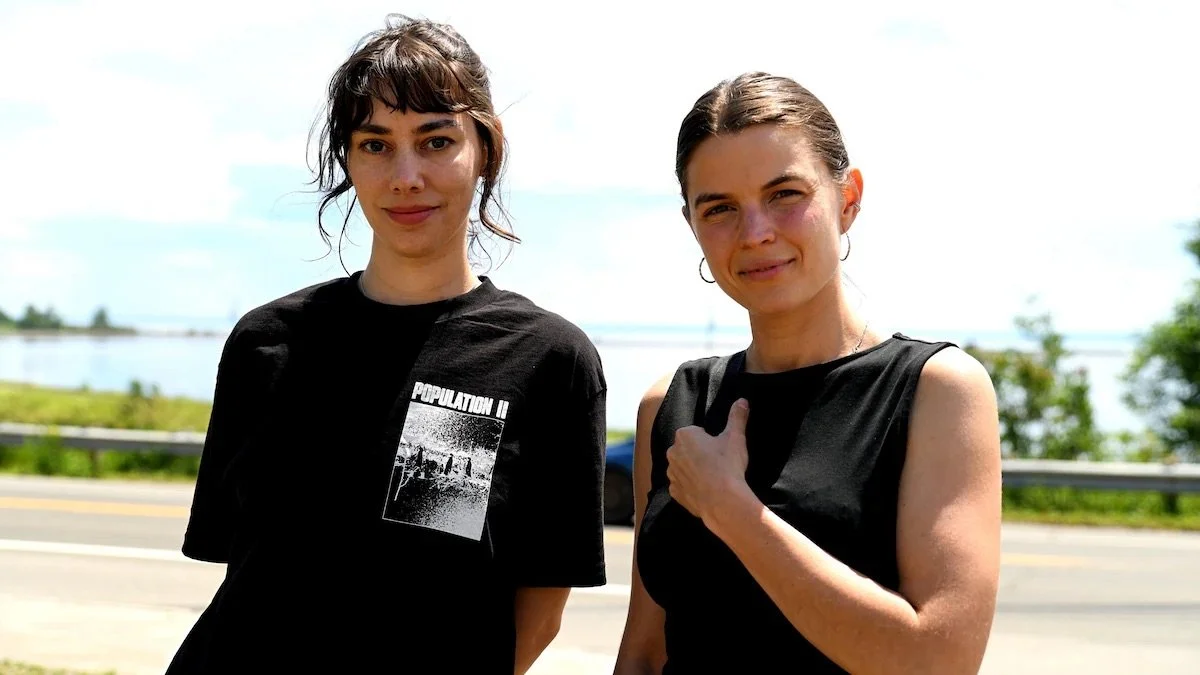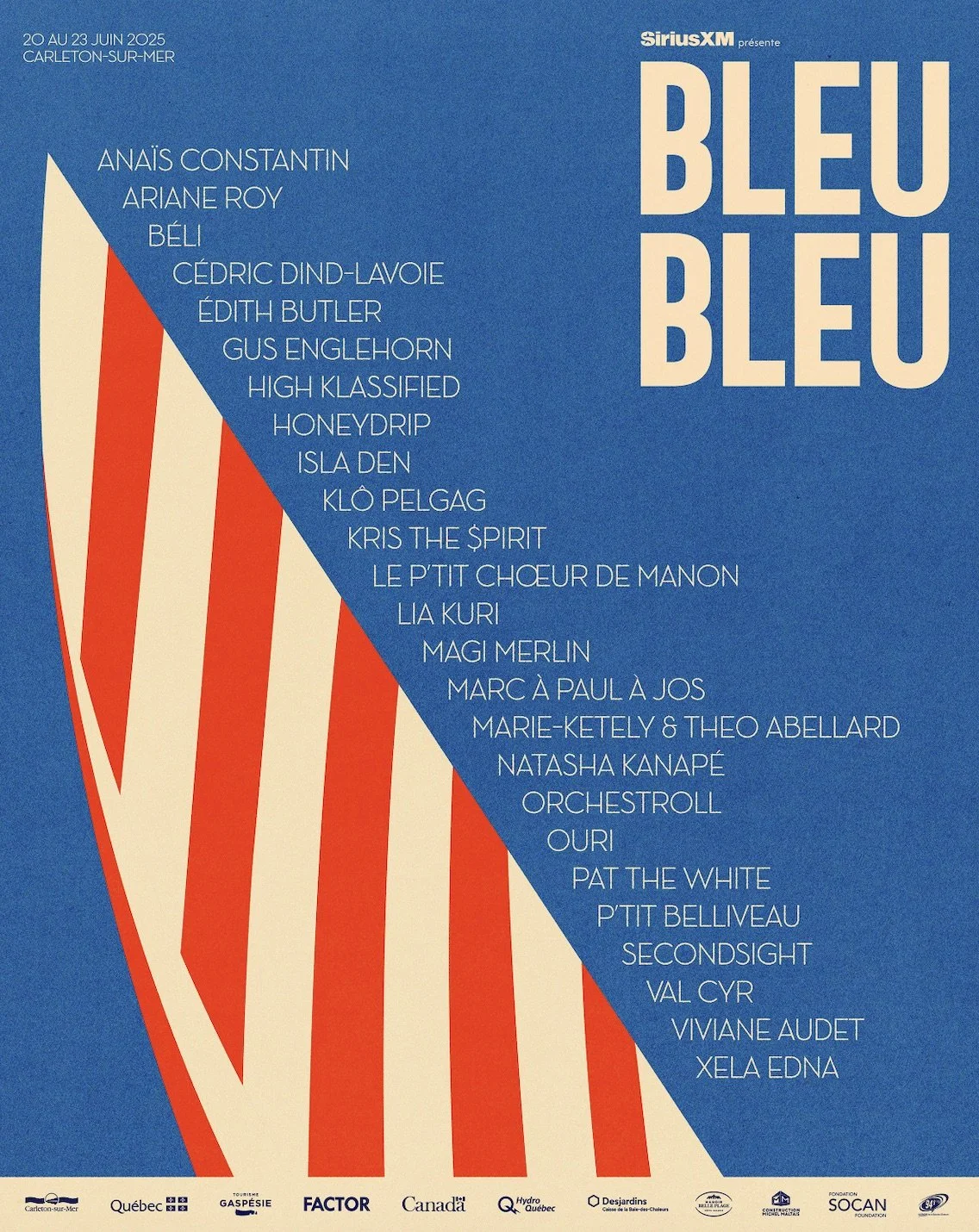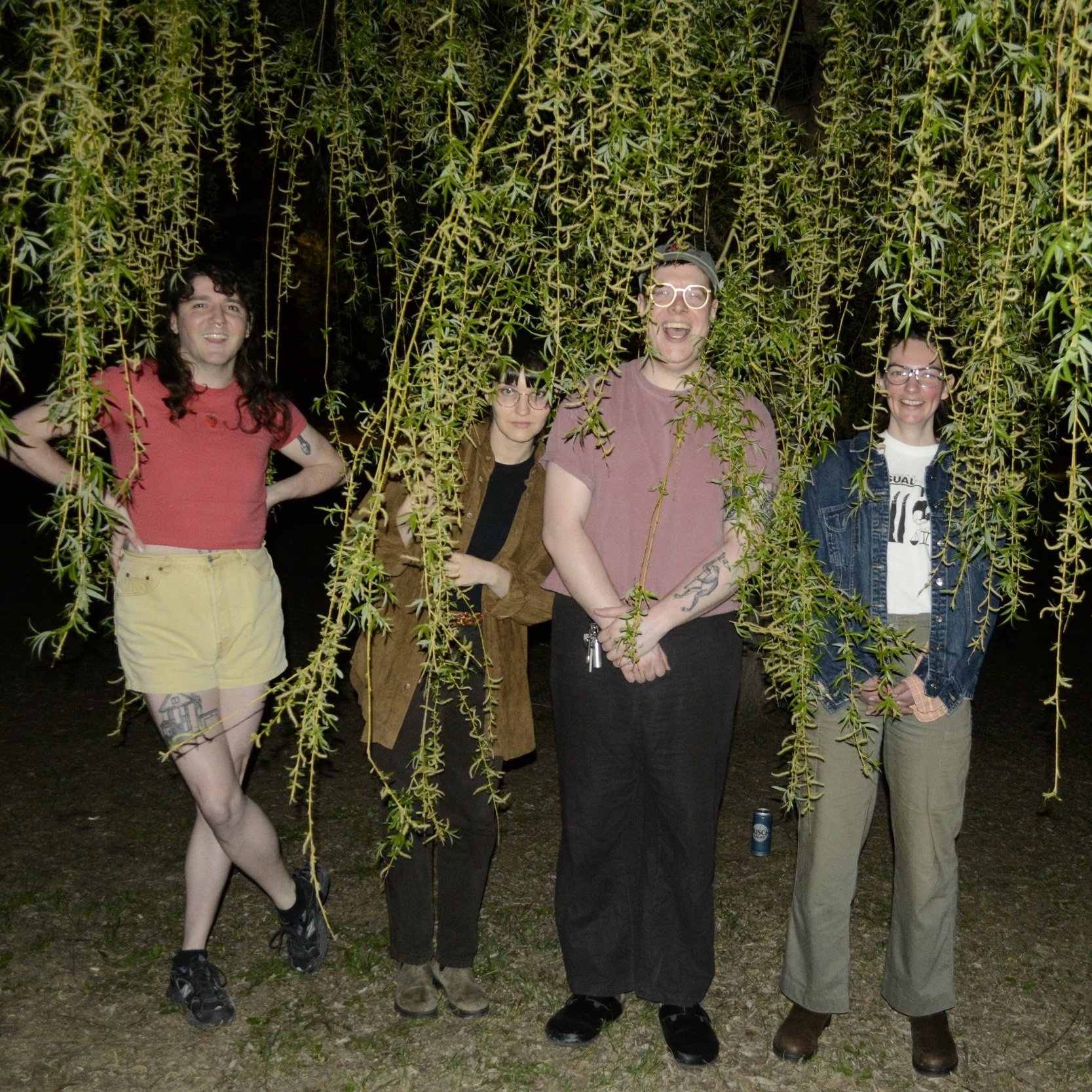Bon Enfant Tempts the Revival of Disco Counterculture with Second Album “Diorama” (Duprince)
Daphné Brissette, Guillaume Chiasson, Étienne Côté, Mélissa Fortin and Alex Burger of Bon Enfant. Photo courtesy of Camille Gladu-Drouin
Close your eyes and imagine a cosmic collision of Andy Warhol’s “Exploding Plastic Inevitable” with a 1980s coming-of-age film – except auditory.
Hold onto your seat and pull on your go-go-boots, Bon Enfant’s second album Diorama is going to transport you through time. Released on Montréal’s own Duprince, the album dazzles thanks to the sophisticated yet swirling psychedelic troupe of Daphné Brissette, Guillaume Chiasson, Étienne Côté, Mélissa Fortin and Alex Burger. The spacey yet visceral album comes after two of its tracks “Ciel Bleu” and “Astronaute Amateur” were released as singles earlier this year.
Bright keyboard harmonies fuse with steady basslines and ABBA-esque vocals in Diorama’s 11 tracks— with tracks like “Cinéma”, we are even confronted with a brief brush of slide guitar. The album is a pot-pourri of ambiance and eclectic grooves; Bon Enfant has transformed disco into high art.
To the creatives desiring solid vocal harmonies and impressionistic arrangements: we have found an album to stimulate your imagination. Whether it be creativity or Québ discothèque culture, Diorama is sure to revive flames that have been lost. Also Cool recently caught up with Bon Enfant to discuss the social forces which directed their songwriting, moodboards, and simulated realities.
Album art via Duprince
CJ Sommerfeld for Also Cool Mag: Hello there, thank you so much for taking the time to speak with Also Cool about Bon Enfant's new album! I am ecstatic about Diorama and would love to hear more about how it came to be.
I have read numerous genres attached to the band—retro pop, Québec pop, and pseudo glam rock are just a few. If you could create a new, original genre to label Bon Enfant's new album, what would it be?
Guillaume and Daphné of Bon Enfant: That’s a good question, because we don’t necessarily try to build a homogeneous aesthetic or genre throughout our albums. We instead embrace different directions for the arrangements depending on the song’s vibe. We love to blend different eras of music and incorporate anachronism in our songs. What creates a whole in our albums is our songwriting and our distinctive way of singing and playing instruments, instead of the genres or arrangements. So, maybe “post-chanson”, because usually, chanson française is a big deal in Québec – we often talk more about the words instead of the melodies. With Bon Enfant, we apprehend songwriting in a more English way in the sense of putting the melody first and words after. It may be the reason why we often sell albums outside Québec.
Also Cool: The band's first album only just came out in November 2019, did all the members know one another previously? Or did your relationships begin when the first album was coming to be? How did everyone in the band meet?
Bon Enfant: The project really started with us, Guillaume and Daphné. We wrote a couple of songs and then Étienne and Mélissa joined us – both were playing with Daphné’s other band Canaille. Alex was the one who we vaguely knew before the band and who we really discovered [through] doing shows together. But really, even if we knew each other a little bit before, the relationship grew while touring. Even when we listen to the first album now, we can hear we didn’t have the chemistry we have now. It’s probably what makes our new album so much better, in our opinion – the vibe in the studio was insane because of the friendship we developed.
AC: The sounds heard on Diorama undeniably allude to those from the 70s and 80s – what albums were the band's greatest influences?
BE: Oh, that’s a tough one! We listen to a lot of different music – for this album, we listened to a lot of Vangelis, Abba, Heart and T. rex. To name a few: Abba’s Arrival; Vangelis’ Spiral; The Kinks’ Lola Versus Powerman and the Moneygoround, Part One; Hawkwind’s In Search of Space, Jean-Pierre Ferland’s Jaune, and Louise Forestier’s La douce emma.
AC: If you had to choose one era over the over—70s or 80s, according to the time's sounds and aesthetic, which would it be?
BE: We would probably choose the 70s for the music, but also because it was a very optimistic and creative period for Quebec’s artists. The 80s was a darker and cynical period here with the post-referendum years.
AC: If Diorama could be represented with different images and objects on a moodboard, what would the mood board be comprised of?
BE: There would be:
a spaceship, the kind we can see in Jodorowsky’s Dune documentary,
an apple tree with cider dripping from the leaves, with our producer Emmanuel filling his glass out of the tree,
a magic wand,
a disco ball,
two Wall Street traders shaking hands after doing a great transaction,
Gene Simmons’ tongue on a table,
a room-size synthesizer,
and a Marshall full stack.
Daphné Brissette, Guillaume Chiasson, Étienne Côté, Mélissa Fortin and Alex Burger of Bon Enfant. Photo courtesy of Camille Gladu-Drouin
AC: Speaking of representations, how did the album's name Diorama come to be? I remember making dioramas in school when I was younger, and am so curious about what this word represents to Bon Enfant.
BE: The word came out when we wrote the lyrics of the eponymous song that talks about simulated reality. We figured out it would be a great album name as the creation happened in confinement. The two of us, Guillaume and Daphné, had to build ourselves a little world inside our apartment to inspire us. It seems also that we’re always looking at things through a glass, a screen or a window – everything reminded us of dioramas.
AC: A certain magic emerges when music is accompanied with visuals. The video for “Ciel Bleu” reminisces on the aesthetic of the uncomplicated, predated-MTV-music video; the flashes of Olan Mills-esque portraits also contribute to this time-traveling effect.
Are there any other components of music videography from the past that you are hoping to be revived in Diorama's next videos?
BE: We want to explore other eras in our next videos, so bye bye 70s. We are thinking about doing a David Cronenberg-inspired music video with an uncanny vibe, and maybe bio-tech... we’ll see. (laughs)
AC: Living on the west coast of Canada, I have always been jealous of the animate music scene further east. I noticed that Bon Enfant's next tour is constrained to Québec, does the band have future plans of visiting other parts of Canada, notably Vancouver? We would love to have you here!
BE: We sure want to tour all of Canada, [we have] nothing planned farther west than Ontario but spread the word around and we might do the trip!
DIORAMA
Released on October 1st, 2021 via Duprince
Astronaute amateur
Cinema
Ciel bleu
Porcelaine
Pâte à biscuit
Triangle
L'amour à sens unique
Chagrin d'amour
Diorama
Grandiose
Vent doux
Produced by Emmanuel Éthier
All rights reserved Duprince, 2021
Two album release shows are also on the horizon, October 21 at the Fairmount Theatre in Montreal and October 23 at the Pantoum in Quebec City. We’ll see you there!


